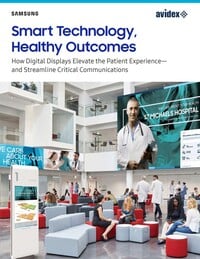AIA Portland's The Center for Architecture

Planar UltraRes 4K Display Serves as a Key Visual Resource at the Center for Architecture
The American Institute of Architects (AIA) is a non-profit, professional membership organization comprised of architects and allied industry members that provides resources for architects in their practice. With more than 90,000 members nationally, the AIA serves to advocate for architects and architecture in communities everywhere, including through efforts in local and national government. AIA Portland operates from a historical building that underwent massive improvements in 2007, and was subsequently renamed the Center for Architecture—a charitable organization dedicated to advancing public understanding and appreciation of architecture, design, urban planning and the role of the built environment in the quality of life.
The Center functions as a meeting place for professional architects and AIA members, as well as an educational and outreach resource for the public. Since the 2007 renovation, a projector system had been used to support the Center's needs, but as the projector became outdated, AIA Portland sought a display solution that represented current technology. After consulting with Planar, and learning what possibilities could best serve the space, AIA Portland selected a Planar® UltraRes™ Series 98-inch 4K LCD display. Offering superior performance, Ultra HD resolution (3840 x 2160) and exceptional 4K clarity, the Planar UltraRes Series is ideal for collaborative meeting spaces, such as that of the Center for Architecture.
Resolution matters
Robert Hoffman, Executive Vice President, AIA Portland and the Center for Architecture, said the decision to go with the Planar UltraRes Series 4K display partially hinged on an expectation in terms of what should be used at the Center for Architecture. "Our industry is very visual, so we believe it's essential to use the latest, state-of-the-art display technology to best support that," Hoffman said. "The Planar UltraRes Series display lives up to that expectation and provides a higher resolution than anything we could get with the projector. We can stream high resolution content and the images are crisp and true to that resolution."
As the primary visual resource for the Center, the Planar UltraRes 4K display is utilized for AIA meetings, classes, architectural exhibits and public events that are held in an open, multi-purpose room. "Because of the size of the space, clarity was a top priority," said Hoffman. "The enhanced resolution of the video display ensures all visitors and attendees can see images and text all the way from the back of the room. People coming in for classes or workshops can connect their laptops to the system using HDMI, so it's also very useful in that regard. Overall, the Planar UltraRes Series display has effectively made the space more marketable for meetings and all types of events."
Integrated design, innovative features
In an industry driven by aesthetics, incorporating a display with an overall sleek appearance was another driving consideration. With a narrow bezel and an elegant, ultra-slim profile, the Planar UltraRes Series display was a perfect fit with the visual environment of the Center for Architecture.
"The crisp, black frame around the projection surface is free of logos or clunky control buttons that would otherwise interfere with the clean look," Hoffman said. "The display blends in perfectly with the Center's walls, which are made of dark-grey recycled materials.
It looks like part of the design of the space."
The display's thin profile is also achieved by off-loaded power supplies. Instead of housing a large power supply behind the display, a simple conduit runs to the building's main power panel located in the basement, a connection which only required that a small hole be drilled into the wall. The Planar UltraRes Series features the Planar® Profile™ Mounting System, which is compliant the Americans with Disabilities Act (ADA) accessibility guidelines and contributes to the streamlined integration at the Center for Architecture. Additionally, the wall-mounted system provides front-service access, allowing a technician to easily service it without removing the display.
"From day one, a lot of different things were envisioned to happen here in regard to bringing architectural awareness into the public realm and serving AIA members," Hoffman said. "The Planar 4K display has helped support these goals by enhancing the visual and educational experience at the Center."



